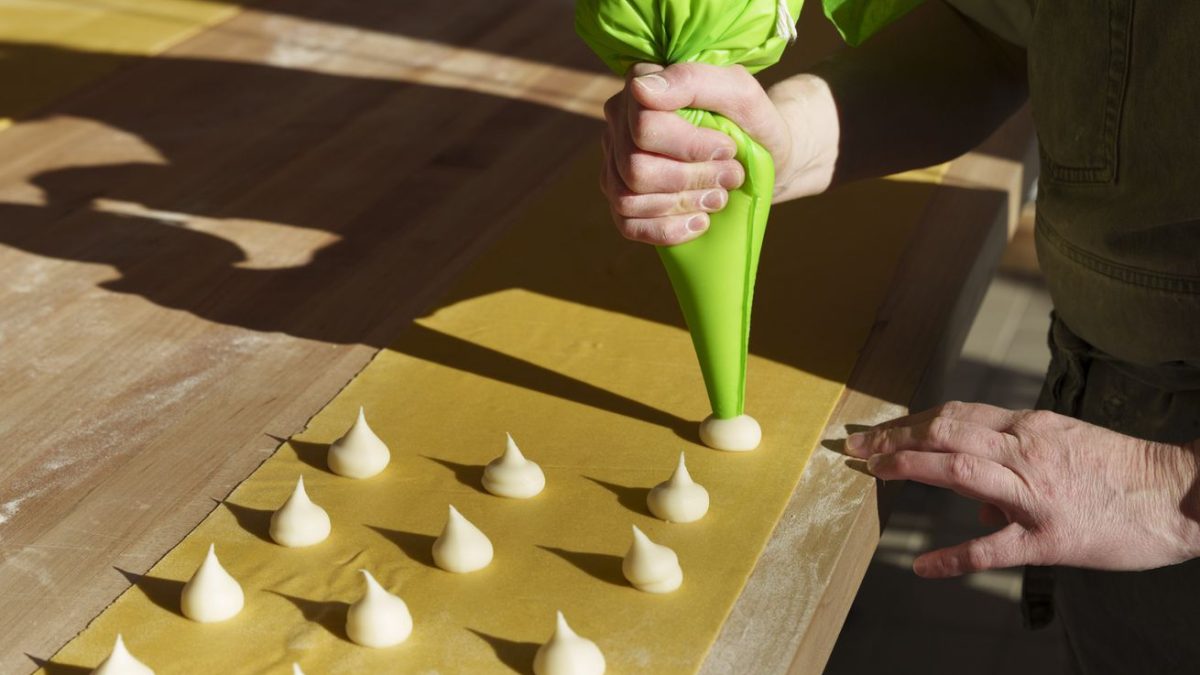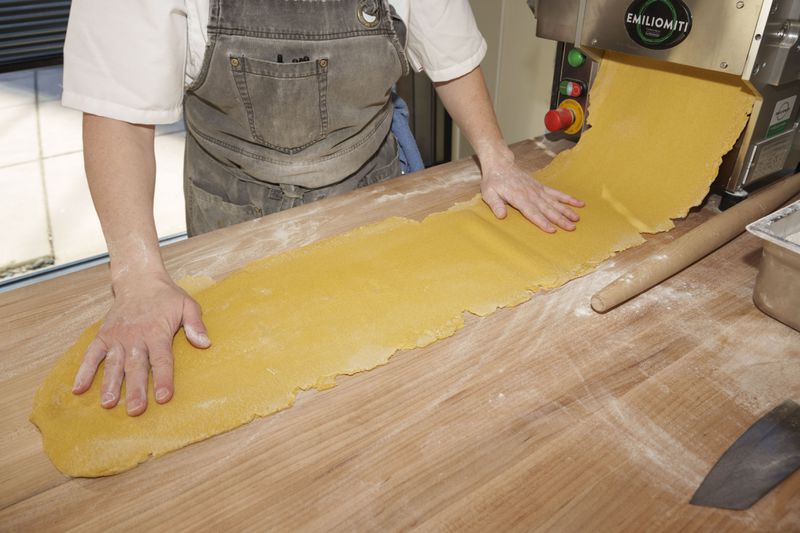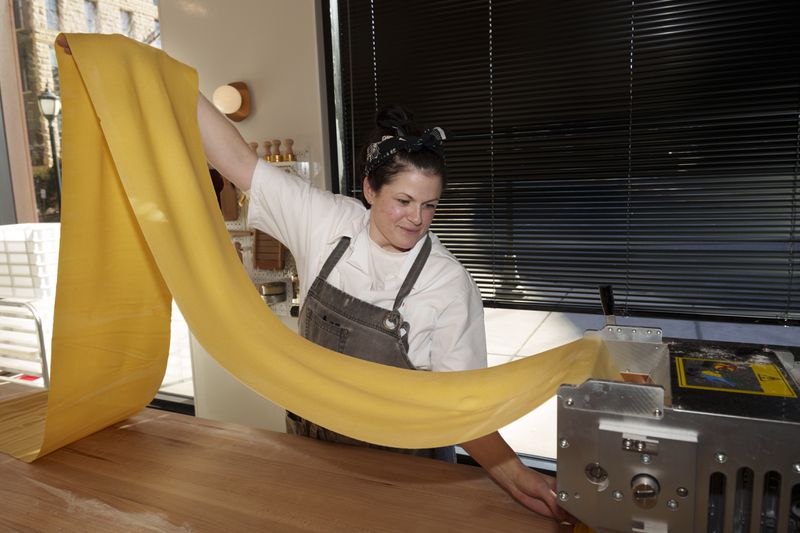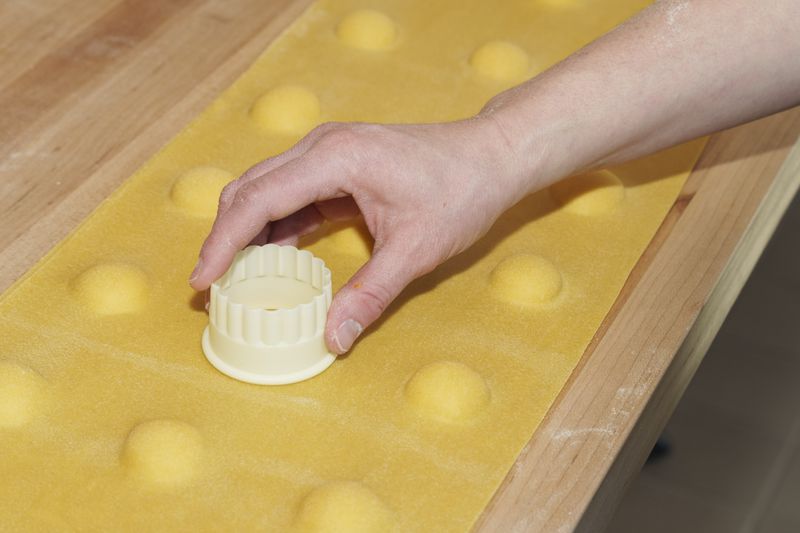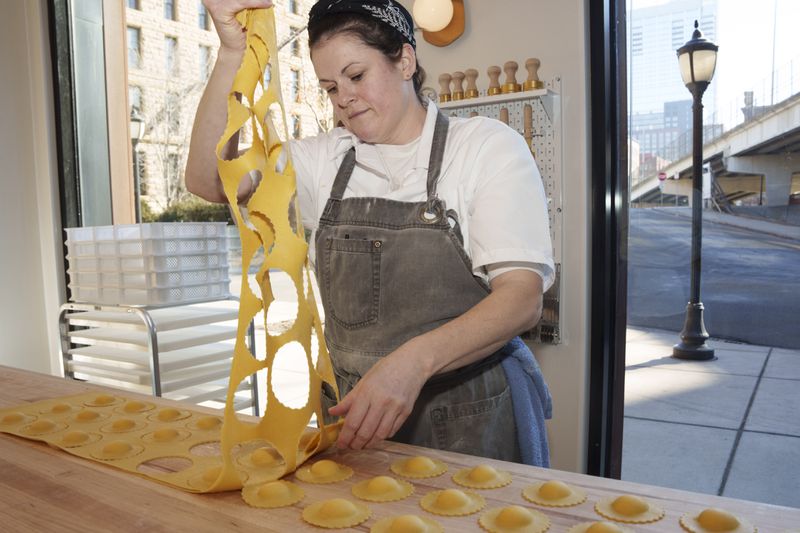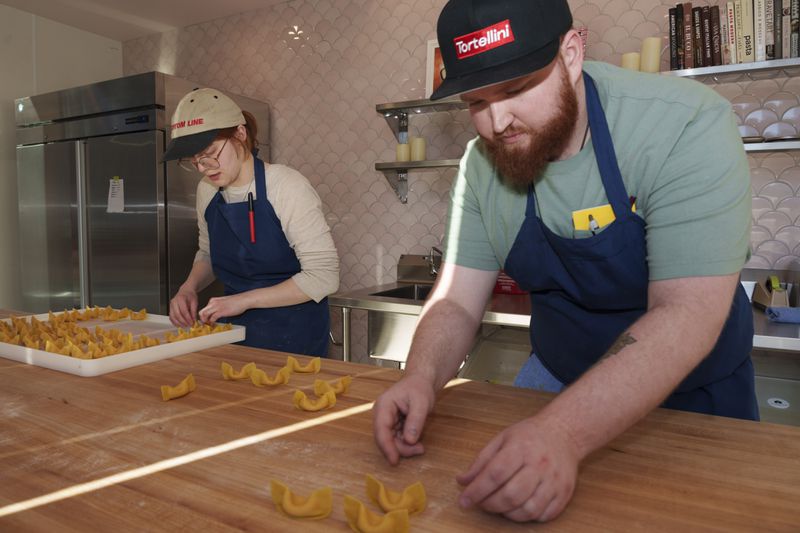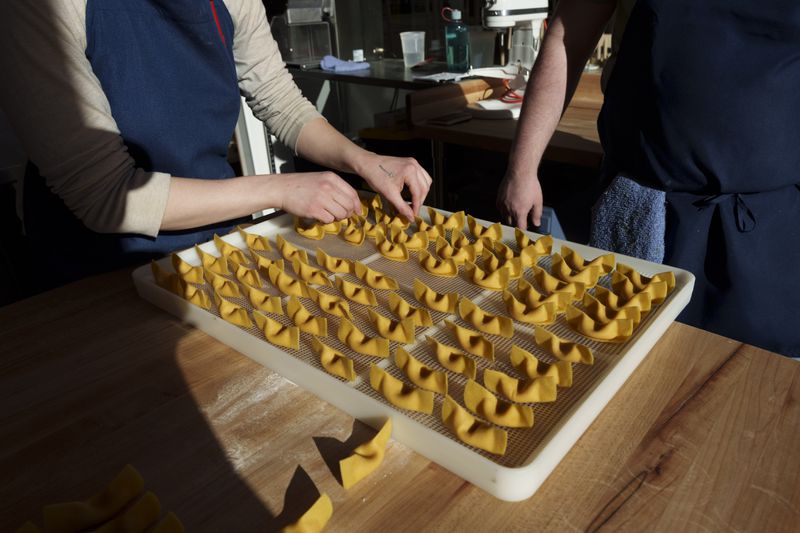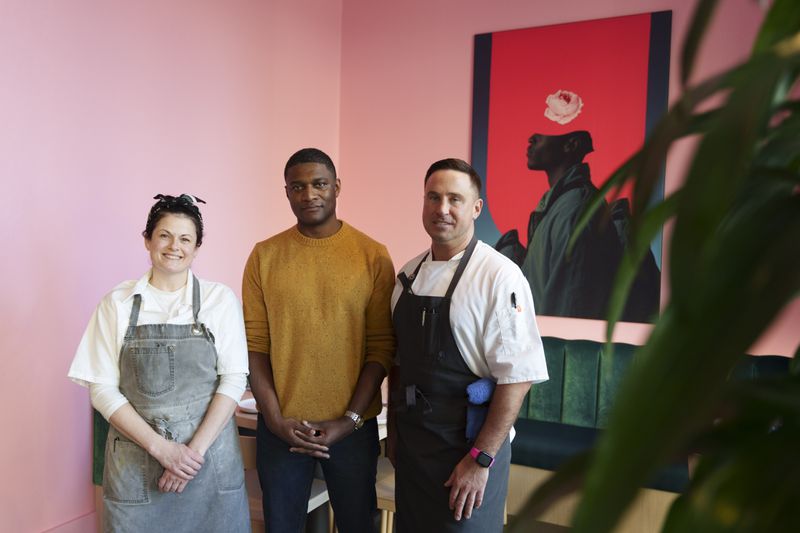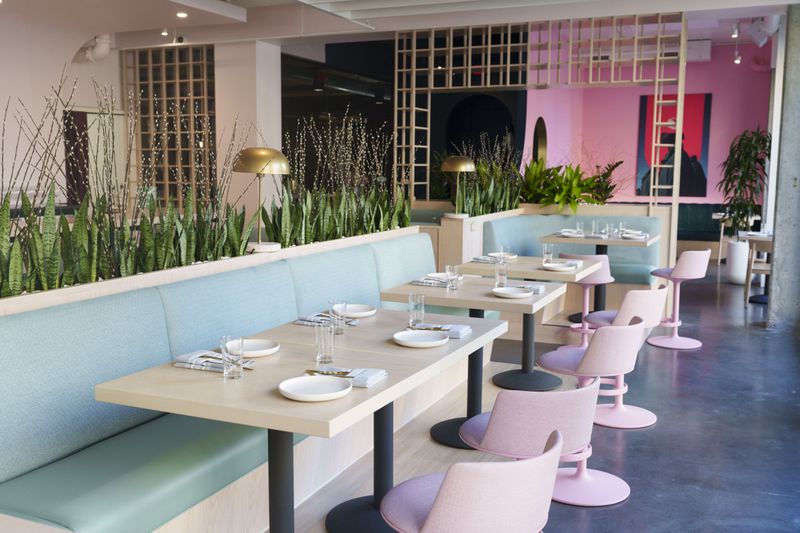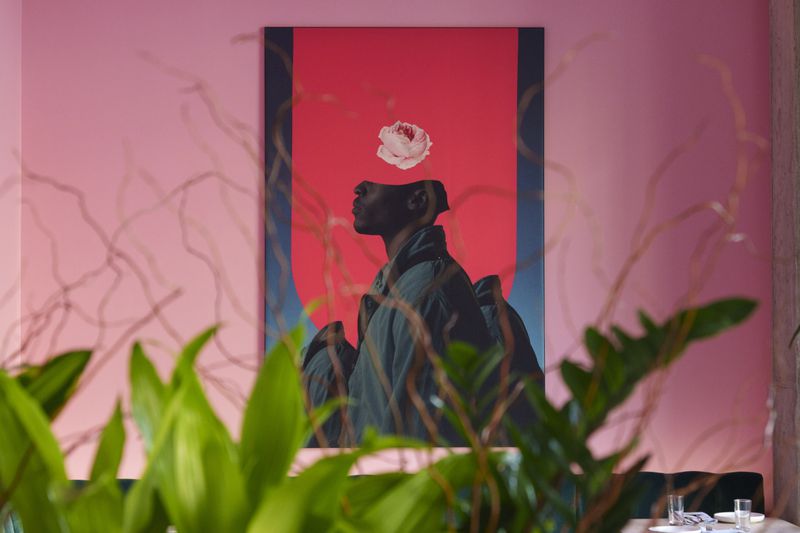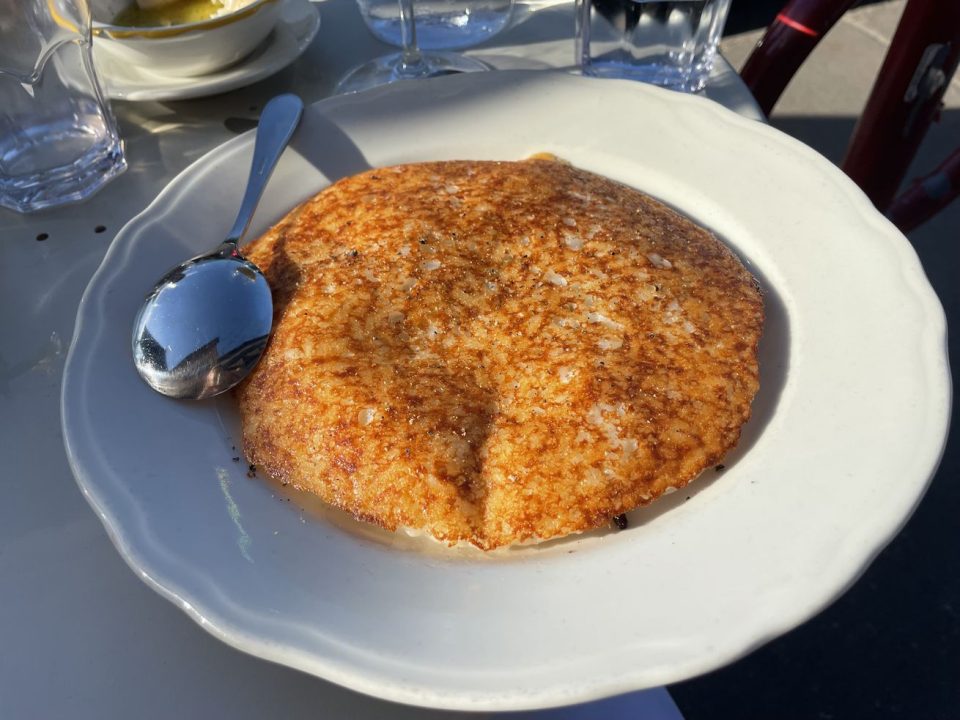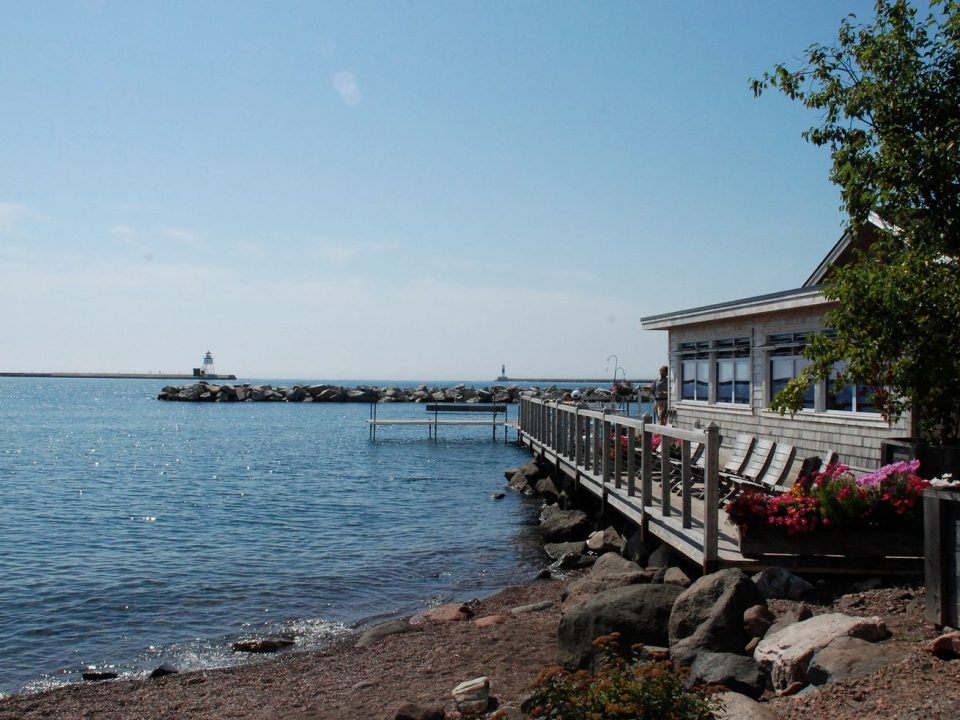
EVs won over early adopters, but mainstream buyers aren't along for the ride yet
February 7, 2024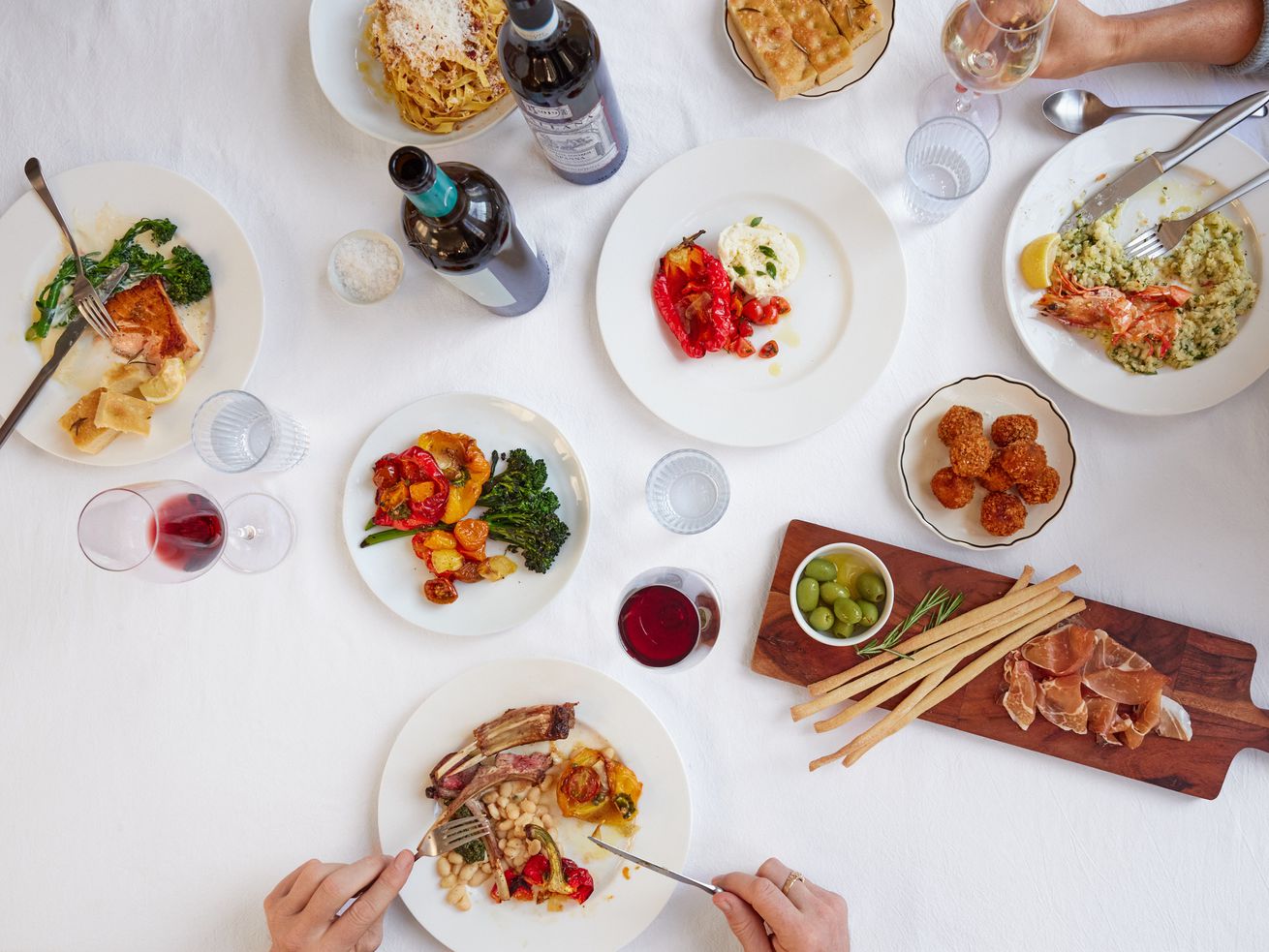
Minneapolis’s New Women-Owned Italian Restaurant Opens With Affogatos and Chianti-Braised Beef
February 8, 2024At Dario, Minneapolis’s new North Loop restaurant, pasta making happens in a narrow, sunny space off the kitchen
Dario’s doppio ravioli arrive under a fine honey glaze and a dusting of rosemary and crushed walnuts, six pieces spaced evenly on the plate. The double pockets are slender, like cigarettes, one filled with a tangy ricotta and the other a sunchoke purée. The pasta itself is tender and yolk yellow, but underneath there’s a razor-edged nuttiness and gentle resistance in the dough.
Pasta is the focus of the menu at new North Loop restaurant Dario, the sun around which raw courses (hiramasa crudo; a larb-like beef salad), fish and meats (char siu pork belly; skate wing in a honeynut squash curry) and vegetable dishes (fennel and citrus; cucumbers in whipped feta tzatziki) revolve. Co-owners Stephen Rowe and chef Joe Rolle brought Rachel Cornelius McLeod (of Cornelius Pasta Co.) onto their team to make it fresh every morning in the restaurant’s dedicated pasta room, a narrow, sunny space off the kitchen.
Dario’s pasta room has an extruder for shapes like spaghetti and rigatoni, but the dexterous hand work happens at the long wooden table where McLeod and her team roll out 8-foot-long sheets of dough, piping out fillings (like lamb ragu with mint, or short rib in a red wine jus) before the pasta is layered, pressed, and cut into classic Italian shapes like anolini, scarpinocc, and agnolotti. At night, after the flour is brushed off the table, the pasta room converts to a dining space.
Dario imports two Italian flours. The first, a “double zero” flour, is ultra fine-ground, “like an Italian all-purpose,” McLeod says. The second, a coarse semolina, undergoes a patented grinding process that keeps it from oxidizing so it retains its bright yellow color. McLeod combines the two for all of Dario’s extruded pastas. “Like with heritage tomatoes, you have varieties of the same type of flour — these [farmers] are using strains of flour for pasta that they’ve been using for generations and generations. It’s cool to use a flour that has history behind it.”
For the filled pastas, McLeod mixes the double-zero flour with a heritage grain durum wheat from local Mill City brand Baker’s Field. “It adds strength to the dough, because durum is the hardest wheat,” she says. “The double zero makes the pasta tender, so you get pasta that has bite but isn’t too rigid.”
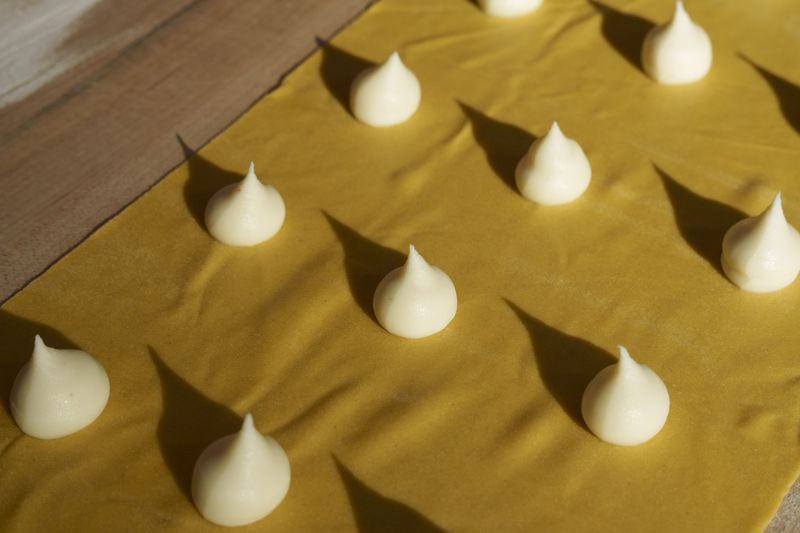
Tim Evans/Eater Twin Cities
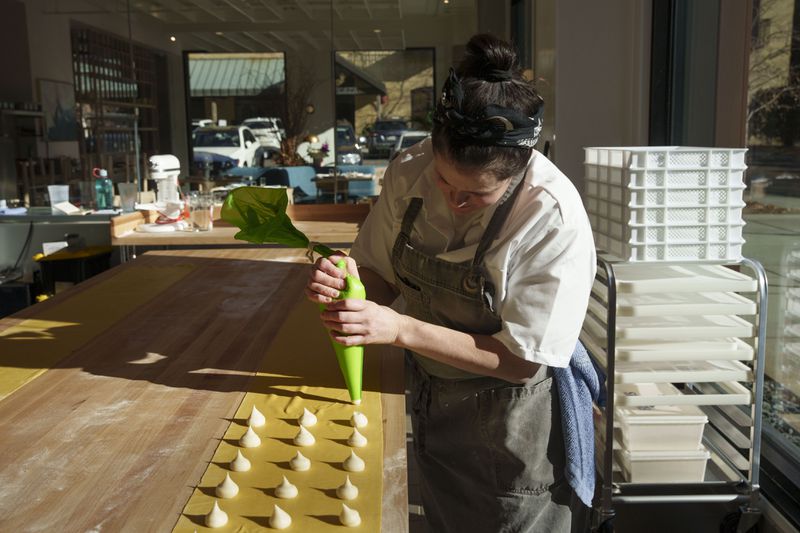
Tim Evans/Eater Twin Cities
Rolle, who grew up in Chisholm, Minnesota, a small town south of the Canadian border, has a rustic orientation toward pasta. “My dad is an avid hunter — he’s probably skinning something as we speak,” he says, laughing. His grandfather, who loved to cook, tended a vegetable garden and raised pheasants. “My grandpa cooked everything my dad harvested — he made pasta and gnocchi very rustically, by hand on the kitchen table. He just formed it and dropped it into water.”
Rolle designed the menu: the Italian-leaning pastas, the sauce-doused proteins; the vegetable and raw dishes with Asian influences (hakurei turnips with chile crisp; oysters topped with spicy beef tartare and a sphere of frozen lime juice). But he credits McLeod as the pasta maven. “She’s somewhere between a three-Michelin-star chef and a true pasta granny,” he says. “She makes it look easy. I can do it and I’m really good, but I look like I’m stressed. She looks like she could be rocking a baby and smoking a cigarette.”
Rowe is the architect of Dario’s bar program. A founding member of Marvel Bar, where he bartended for almost a decade, he has eliminated garnishes from this cocktail list: no dehydrated citrus rounds, sprigs of rosemary, or lemon rinds. “I very much see aromatics as a type of garnish,” he says. “I’m more about attaching the memory of the drink — the smell that you kind of remember, and you don’t know why. That’s the strongest part of the approach.”
There’s a selection of drier, effervescent drinks that “won’t bog you down,” Rowe says, and others with bitter finishes that aid the transition between courses. The full-proof Vieux Carré and the Old Fashioned are pure “heat,” he says — the From Seed to Bloom cocktail, a mix of dill aquavit, Flora Green (a green Chartreuse substitute), and galangal spice, is a boozy sleeper hit. There are a number of low-proof and nonalcoholic cocktails on the menu, too. When Marvel closed abruptly in 2020, Rowe says he and his partner already had a new season of nonalcoholic drinks planned out, so he carried many of his ideas over to Dario.
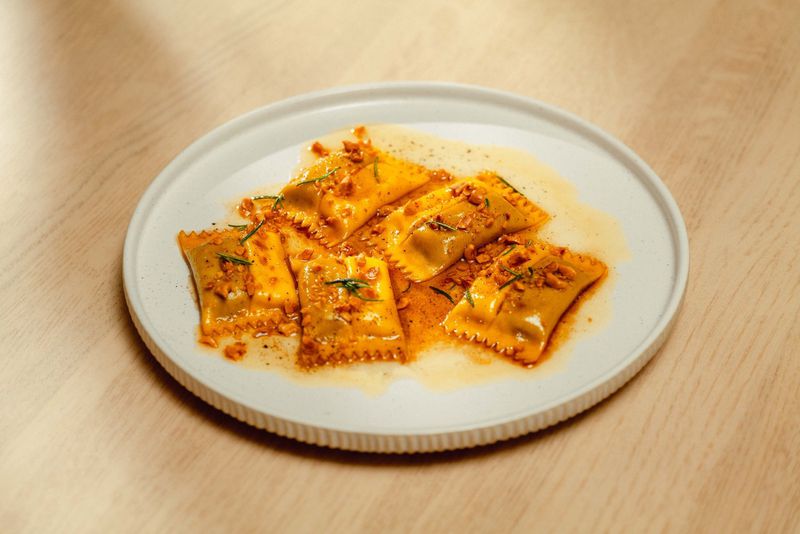
Dallas Currie
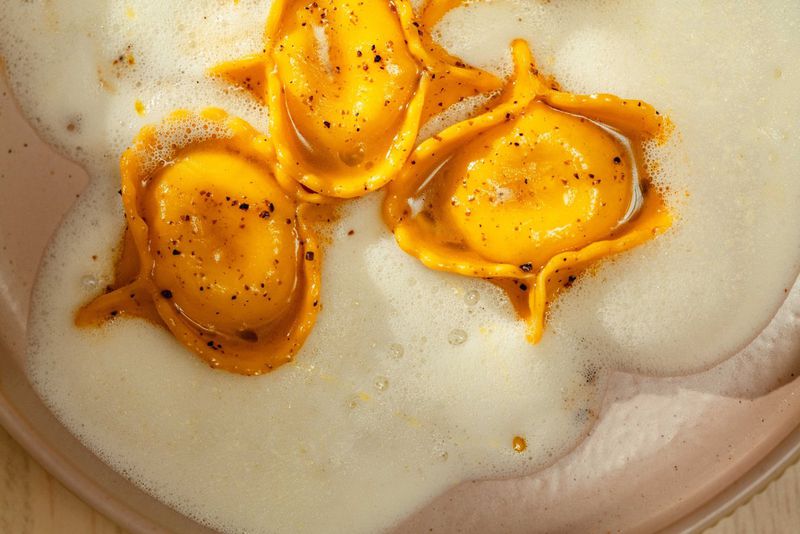
Dallas Currie
Dario is tucked underneath the I94 overpass, in the glass-walled space that was once home to whiskey-focused restaurant Dalton & Wade. Rowe and Rolle washed it with shades of pink and installed sky-blue banquettes. It feels moneyed and sleek, but there’s a scrappy origin story beneath the surface.
“Neither of us really come from money, and we didn’t have a relationship with anybody in commercial real estate,” Rolle says. They asked potential investors out for coffee, and started hosting pop-up dinners in Rolle’s house in St. Louis Park. They bought glassware, linens, used plates, and silverware. Rolle would grocery shop at Cub Foods and local Asian markets; Rowe would hit the liquor store. They bought McLeod’s pasta for the dinners — that’s how they first connected. “Couple coolers, packing lists, prep prep prep,” Rowe says. “The dishwasher was broken at my house, we were hand-washing dishes,” Rolle laughs. “Don’t forget where you came from, that’s for sure.”
And they haven’t, even as Dario joins the ranks of high-profile openings in the North Loop, Minneapolis’s quickly accelerating dining hotspot. “We want to shake things up a little bit,” Rowe says. “There’s a hint of the unexpected in each element.” With the restaurant fully fledged, there’s the sense — as Rolle stirs a pot of brown butter piccata in the back; as Rowe glides among the tables, silently choreographing a seamless service — that none of this is taken for granted. “We committed to each other that this is intended to be a top-tier restaurant, and anything less than that, we screwed up,” Rolle says. “We’re here to play ball.”



